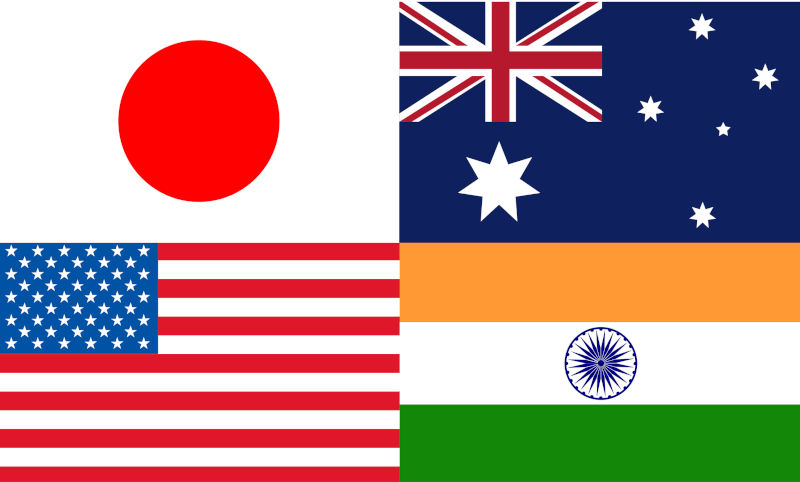Australias real status as a submissive ally
May 18, 2023
Like the occasional failure of a president to pronounce the name of our prime minister, US President Joe Biden cancelling his attendance at the QUAD is a reminder that America needs to balance bilateral relationships with 192 nation states and that up to 20 flatter themselves that their relationship is a special one.
One time candidate for the Republican nomination Senator Marco Rubio of Florida this week warned about Chinas mounting economic strength in an opinion piece in Nine Media. Rubio referred to American allies and economic powerhouses in Asia. Any Australian reader might have assumed Australia would be listed. But we werent. The Senator was referring to Japan and South Korea, it having escaped his notice that Australia defines itself as a dependable, rusted-on US ally. As for economic powerhouse, our economy is roughly the same as Koreas and our GDP per head double.
When Ambassadors Hockey and Sinodinos were handing out Australian lapel badges in the corridors of the Capitol they must have missed the office of this totemic figure, even though in the 2016 nomination contest he was probably the most nimble debater and at 44 had a long future in a party now picking a 76 year old as its nominee. If Rubio doesnt reel-off Australia as an Asian ally, or if he imagines the size of our economy renders us less weighty than Korea, the assumption we are Americas most loved partner- always a myth- has little resonance in the US capital itself.
Like the occasional failure of a president to pronounce the name of our prime minister its a reminder that America needs to balance bilateral relationships with 192 nation states and that up to 20 flatter themselves that their relationship is a special one.
Cancelling his attendance at the QUAD was necessary given the crisis in Washington. Its useful if it reminds Australians the QUAD is not what our media imagine. When I was interviewed on Sky on Thursday the host referred to the QUAD alliance. I enjoyed pointing out that it was not an alliance. It was not a security pact. It couldnt be described as a partnership. It was a forum for consultations.
For middle-power Australia any forum is valuable to explain our values and defend our interests.Implicitly the existence of the QUAD sends a message to China that something more might be made of this diplomatic talking shop if Chinese behaviour warranted it.
Four nations of the Indo Pacific in regular consultation is International Relations 101, a cautionary symbol to a rising power. But its not going to take priority with the White House when Americas extreme polarisation produces a crisis in a system of government wrapped around a 1789 constitution in which an executive is not defined by control of a budget.
Meanwhile Australias real status as a submissive ally which will never complain is confirmed by the Bidens administrations apparent refusal to accept our prime ministers request to drop extradition proceedings against Julian Assange. It can be assumed from Prime Minister Albaneses statements that he was making representations about the matter three months after the election. The lack of movement confirms the American security state just wont buy the argument that its ally is entitled to a win- even when the Australian prime minister uses the killer fact that Chelsea Manning received a commuted sentence from Obama and walks free while the Australian, who received material from her and published it, is the subject of a merciless pursuit.
Given the flow of propaganda about how liked we are in Washington - our ambassadors playing golf with Trump, barbeques with Congressmen who sign up to an Australian friendship group- you would think the Assange matter would be resolved with a resigned shrug of the shoulders and the comment, Its those persistent Aussies- both sides of their politics are asking this fella be set free. We cant say no.
At the end of next year Americans will determine whether Trump becomes President for a second time. He is fond of Putin and, like some other leaders of the Republican Party, critical of American support for Ukraine. In a Fox interview Trump praised the unshakable statesmanship of Xi Jinping and the lustrous beauty of his female interpreter. His vice presidential running-mate could just as likely be Marjorie Taylor Greene as any of the other conspiratorial collaborators in Congress.
Australians might also begin to contemplate the frailties Joe Biden is unable to hide.Interviews and media conferences are getting harder for him. At the end of his second term Biden will be 85, an age at which one in five Americans struggle with Alzheimers. Should the president be forced by illness to resign his vice-president Kamala Harris offers no grounds for confidence that she can emerge as the Harry Truman of her time.
In their novel_2034_ (Penguin Press, 2021) Admiral James Stavridis and his co-author Elliot Ackerman create a circumstance where naval conflict between the US and China in the South China Sea sparks a decision by the president to detonate a tactical nuclear weapon over a Chinese city with a population of 10 million. Nothing in the book renders this dismal declension inherently unlikely. Stavridis was NATO Supreme Allied Commander and had served as commander of two US aircraft carrier battle groups.
Interestingly, this disturbing piece of fiction positions a woman as president, under pressure to take an extreme step because all of Washington - the media and the security apparatus especially - are determined to brand her as weak.
The slow motion exchange of theatre nuclear weapons between China and the US renders both of them incapacitated. What should grab the attention of our armchair warriors is that the mutual damage China and the US inflict on one another removes both from global leadership. The new world order is dominated by India, Iran and Russia.
Have our China hawks ever contemplated the world order that emerges from the US-China showdown they seem so happy to cheer on?

